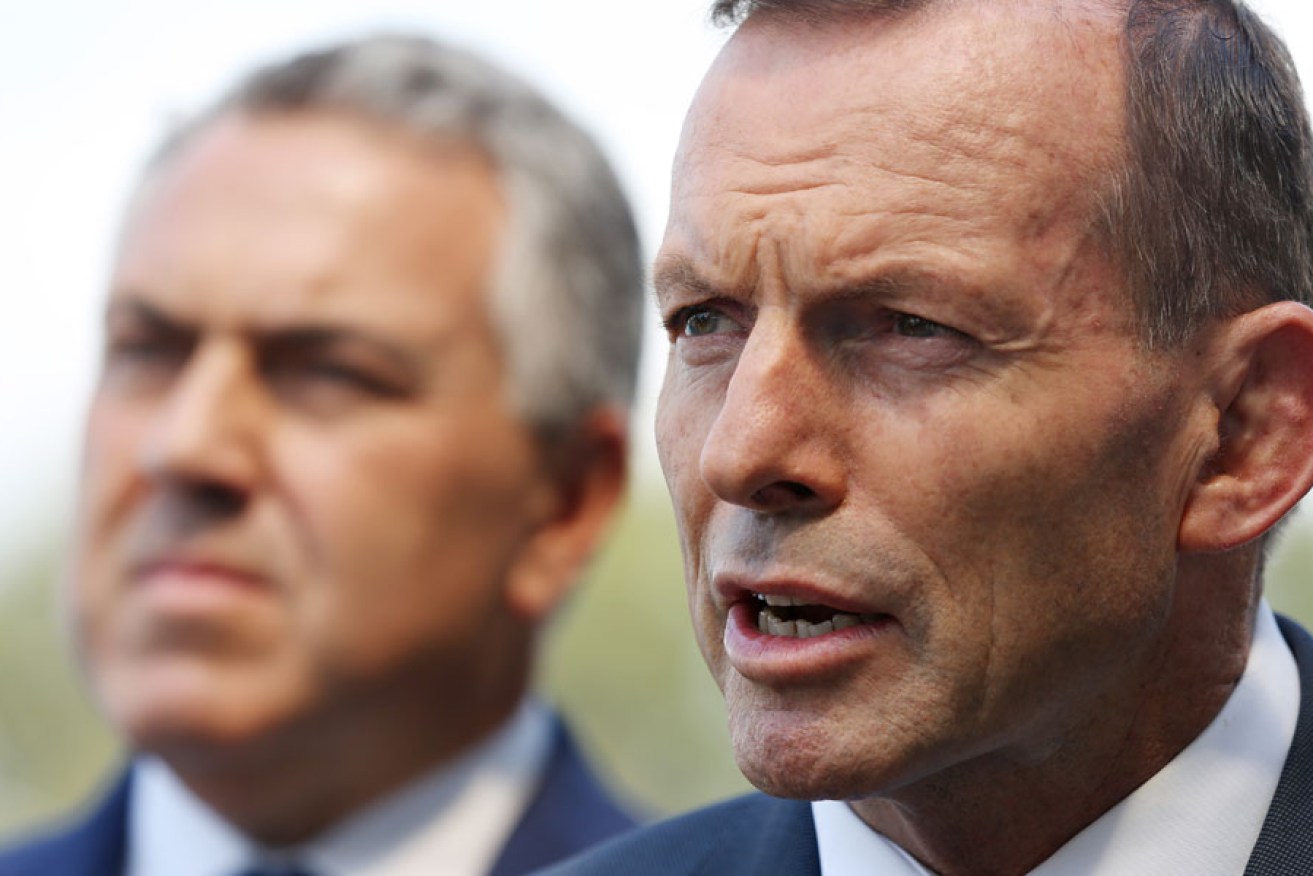Abbott and Hockey refining budget script

Tony Abbott and Joe Hockey (background)
Like ships passing in the night, Tony Abbott and Joe Hockey haven’t seen a lot of each other recently.
Just as the treasurer returned home from a trip to the United States to dissect the global economic outlook through G20, International Monetary Fund and World Bank meetings, the prime minister was jetting off to Turkey for Anzac centenary commemorations.
With the May 12 budget less than three weeks away, there are murmurings on the government backbench about the lack of face-to-face communication, especially in light of last year’s gaffe-prone selling of its first effort.
Coalition MPs don’t want to see a repeat episode in which a prime minister is forced to dig his treasurer out of an off-script hole and vice versa.
A year ago, Hockey had to navigate through a swathe of broken promises Abbott made just days out from the 2013 election.
This time around the hard lessons appeared to have been heeded. So far the pair is reading from the same page of a less ambitious budget, save for the prospects of a future surplus.
Abbott has boasted that under his government the budget deficit will decline every year.
“Each year will bring us closer to a surplus,” he said.
The assumption was that meant actual dollars, and billions of them.
Days later, Hockey offered a more refined interpretation of the government’s intent: the budget deficit would be reduced as a percentage of GDP.
For economists, it was a subtle difference. In the real world, the nuance might be harder to sell as a sign of an improvement in government finances.
The reality is that as the economy grows, the deficit may well reduce as a proportion of GDP while the dollar bottom line remains the same or gets bigger.
Deloitte Access Economics economist Chris Richardson says the difference between the two gauges is perhaps about $1 billion a year.
That’s small when you consider this year’s deficit was projected at $40.4 billion in December and will be probably worse when budget forecasts are released in May.
“But just the fact the government’s signalling it would like that wiggle room is a strong signal just how hard it is to drag the deficit back,” he said.
While Abbott and Hockey insist they are trying to rectify Labor’s spending problem, revenues have been whacked by a slump in the iron ore price and slow wages growth.
It’s money the treasurer says he won’t be chasing to make up through higher taxes.
Nor will he be “slamming the brakes” on the economy by making drastic spending cuts when the Reserve Bank has its “foot on the accelerator” trying to stimulate growth through lower interest rates.
RBA governor Glenn Stevens has indicated the central bank could soon be pushing the accelerator, with another interest rate cut “on the table”.
But he is the first to back a more gradual approach to the budget repair task, adding that any help to boost sustainable growth from other policies would be welcome.
To anyone lying awake at night worrying when we might get back to a surplus, don’t hold your breath because Hockey now swears he never put a date on returning to the black.
Unsurprisingly, Labor was quick to catalogue seemingly every utterance that Hockey or Abbott have said on a surplus.
In the heady days of opposition, a surplus was going to happen in the first year, then the first term of government before becoming five years. With reality sinking in, it became a “broad balance” in 2018/19.
Now it’s “as soon as possible”.
Whatever budget script Abbott and Hockey settle on, they are not going to make Wayne Swan’s mistake of nominating a precise end date to deficits.
At least not at this stage.
Colin Brinsden is AAP’s economics correspondent.




